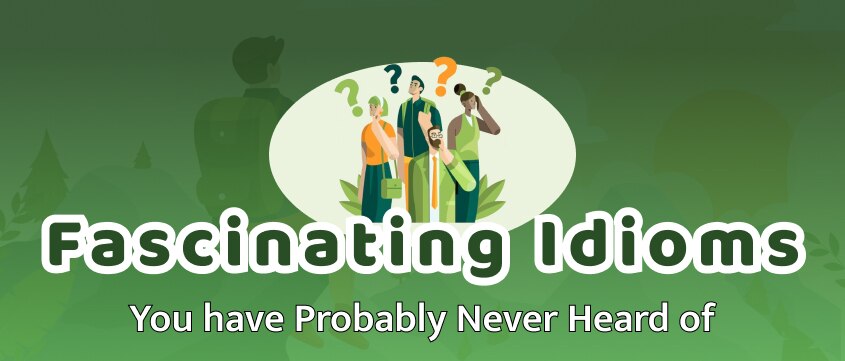Idioms are the spice of language, adding flavour and depth to our expressions. While many idioms like “break the ice” or “hit the nail on the head” are widely known, there are countless others that remain hidden treasures, waiting to be discovered. Here, we delve into some intriguing idioms from around the world that you’ve probably never heard of but will definitely want to add to your vocabulary.
1. “To Paint the Devil on the Wall”
Origin: Germany
This German idiom, "den Teufel an die Wand malen," means to imagine the worst possible scenario. It’s akin to the English phrase "to tempt fate," but with a more vivid imagery of conjuring up the devil himself. Use it when someone is being overly pessimistic or unnecessarily worrying about something.
Example: "Don't paint the devil on the wall; the meeting might go smoothly."
2. “Not My Circus, Not My Monkeys”
Origin: Poland
The Polish idiom "Nie mój cyrk, nie moje małpy" translates to "Not my circus, not my monkeys." It’s a colourful way of saying, "Not my problem." Perfect for distancing yourself from issues that don’t concern you, it highlights the importance of focusing on your own responsibilities.
Example: "She asked for your help with her project again? Remember, not your circus, not your monkeys."
3. “To Wear a Cat on One’s Head”
Origin: Japan
"Neko wo kaburu" means "to wear a cat on one’s head" in Japanese. It refers to someone pretending to be innocent or sweet when they are actually not, much like a wolf in sheep’s clothing. This idiom is perfect for those moments when someone is being deceitful under the guise of innocence.
Example: "He acts all friendly, but don’t be fooled—he’s wearing a cat on his head."
4. “To Have the Cockroach”
Origin: France
The French say "avoir le cafard" (literally "to have the cockroach") to describe feeling down or depressed. It’s a more whimsical way of expressing a case of the blues. This idiom adds a touch of quirky humour to the common experience of feeling sad.
Example: "After the party ended, she had the cockroach and didn’t feel like doing anything."
5. “To Slide in on a Shrimp Sandwich”
Origin: Sweden
The Swedish idiom "glida in på en räkmacka" (literally "to slide in on a shrimp sandwich") means to have things easy or to be born with a silver spoon in one's mouth. It paints a picture of effortless success.
Example: "He never had to work hard; he just slid in on a shrimp sandwich."
Idioms are more than just phrases; they are cultural windows that offer insights into the values, humour, and worldview of a society. By incorporating these lesser-known idioms into your speech, you not only enrich your own language but also keep these unique expressions alive. So, the next time you find yourself in a conversation, surprise your friends with one of these fascinating idioms and enjoy the colourful reactions they elicit.
What is Red Fox Education?
Red Fox Education is a dynamic English Language Learning Platform committed to providing comprehensive and interactive language courses. Our team, comprising expert language educators and content developers from the UK and India, is dedicated to offering an innovative and authentic learning experience to students of all age groups. We offer the widest range of products and services such as Live online classes (British & Indian tutors), Self-study courses, Certification courses, Tests and Assessments, Podcasts, Quizzes, Speech Buddy, Stories, Ebooks, Blogs, Videos, Audio Flashcards, and many more learning modules.
Subscribe to our "Premium plan" and get unlimited access to our Premium products. Red Fox Education's English courses will give you the language and the confidence you need to hold conversations in spoken English relevant to each of the topics.
If you still don't have the Red Fox Education mobile app download it.
Jun 29, 2024 | English | No Comments











